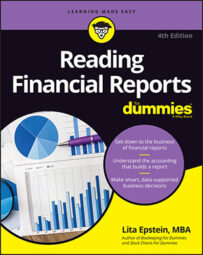Companies not only send out financial reports to analysts, but also talk with analysts regularly about the reports. Sometimes you can get access to what's said by listening in to analyst calls or reading press releases. You can also get information from road shows, but you usually don't have access to them unless you're a major investor.
Analyst calls
Each time a company releases a new financial report, it usually schedules a call with analysts to discuss the results. Usually, these calls include the chief executive officer (CEO), president (if not the same as the CEO), and chief financial officer (CFO), as well as other top managers.
Individual investors can listen in on many of these calls between companies and analysts. The calls typically start with a statement from one or more of the company representatives and then are opened up to listener questions.
However, as an individual investor, you may not be able to ask any questions. In most cases, only the analysts, and sometimes the financial press, are allowed to ask questions. But even if you can't ask questions, you can learn a lot just by listening.
The biggest advantage of listening to these calls is that analysts ask questions of the executives that help you focus on the areas of concern in the financial reports.
You can find out about upcoming calls or listen to calls already completed at two websites: 24/7 Wallstreet and Investor Calendar.
In the past, calls between analysts and companies were a way for analysts to get insider information about a firm before the news was broadcast to individual investors. The SEC stopped that practice in 2000 with a new rule called Fair Disclosure (Regulation FD). This rule makes it mandatory for companies to inform everyone at the same time about major financial announcements.
Sometimes analysts find out information in a conversation with officers or employees of a corporation during a private interview. If analysts receive information that others aren't aware of, the company must release a press release about the information within 24 hours of any company outsider getting the information. Regulation FD has certainly leveled the playing field for individual investors.
Press releases
Companies often feed information to analysts through press releases. Luckily, individual investors can easily access these press releases on financial websites. But remember that press releases are always going to contain exactly what the company wants you to know. You need to read between the lines and ask questions of the company's investor relations department if something concerns you.
Press reports, which are written after a press release is issued, are probably a more important source of information. Companies put out a lot of press releases, and not every one makes it into the newspaper as a story. In fact, most press releases end up in the garbage because a financial reporter determines the information isn't worth a story.
You can easily track press releases online. One of the best spots for following not only a company's press releases, but also any stories mentioning the company, is Yahoo! Finance. You can find out about any recent press coverage for a company by searching the website using the company's stock ticker, which is a multiletter abbreviation for the company's stock.
Links to recent press coverage and press releases appear in a section called “Headlines.” If you want to go further back in history, most companies post at least three years’ worth of press releases in the press section of their websites.
Mobile apps
Some companies now provide mobile applications to communicate with their investors. It's a relatively new phenomenon at the time of this writing, but a leader in developing these is theIRAPP. You can find out which companies offer these apps at theIRAPP website. Many companies offering a mobile app have not yet listed the app as available; you may have to do some digging to find these apps.
Road shows
Companies use road shows to introduce new securities issues, such as initial stock offering. Road shows are presentations by the company and its investment bankers to the analyst community and other major investors, in the hope of building interest in the new public offering. As an individual investor, you're not likely to be able to attend these shows; invitations are reserved for people who can put up significant funding.

